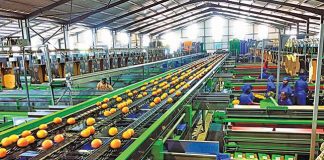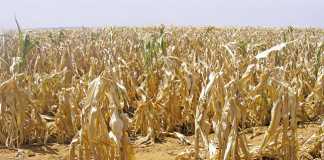
Photo: Supplied
This agricultural production is largely reliant on the effort and output of smallholder and subsistence farmers, who produce as much as 80% of the food in sub-Saharan Africa according to the World Food Programme.
Unfortunately, these farmers face a wide range of challenges. Research from a Vodacom commissioned Africa.connected policy paper highlights that smallholder farmers in Africa are hampered by political instability, economic uncertainty, climate change and limited access to information, markets, capital and even basic inputs like fertilisers and seeds.
In addition, as the number of people living on the continent grows – Africa’s population is expected to double by 2050 – it is becoming increasingly difficult for these small-scale farmers to ensure food security.
Vodacom Business’s recent rallying call to all business sectors to ‘turn to us’ for support with their digitalisation journey may be the solution farmers have been looking for. Introducing a higher level of digitalisation and innovation into the agricultural sector is key to address food security concerns.
Digitalisation can help farmers turn their challenges into opportunity by improving adaptability, productivity, and resilience and even mitigate the effects of climate change. If we are to ensure a sustainable future for the continent, and the planet, it is imperative that these solutions are scaled, inclusive and utilised effectively.
The potential of digitalisation for Africa’s smallholder farmers
Digital innovations in agriculture are already playing a transformative role for smallholder farmers in Africa. One platform which is helping farmers overcome these challenges is Mezzanine’s Connected Farmer platform.
Connected Farmer consists of a range of basic applications and more integrated services. This platform provides 2.1 million farmers, many of which are in the most rural areas in Africa, with crucial connectivity capabilities. Through their various products, the platform connects these farmers with a range of product providers and services like finance, insurance, and buyers.
DigiFarm, another smart farming platform, currently has around 1,4 million subscribers and leverages mobile and digital technologies to help smallholders overcome efficiency challenges on their farms. Just ask Benjamin Ikombo, a 70-year-old small-scale farmer in Kenya.
Benjamin has been farming mangos for decades but consistently struggled with crop management. Today, Benjamin is using DigiFarm’s drone services to dramatically improve the process of spraying his crops. In using drones, Benjamin can manage his crops with greater precision, which decreases waste and increases accuracy. A win-win for Benjamin.
Through technology, farmers like Benjamin are able to access information they need to farm more efficiently, while also connecting them with inputs, customers, a broader supply chain, and enabling them to access critical financial services like credit and loans. According to Agrilinks research, digital innovations have helped to increase smallholder yields by as much as 70%, correlating with an average increase of 40% in farmers’ incomes.
Furthermore, the introduction of digital services and technologies can create a butterfly effect for smallholder farmers; with one small change having a far greater impact. When a smallholder farmer in Tanzania turns to Vodacom’s digital agricultural platform M-Kulima, they can list their produce on a digital marketplace and connect directly with buyers.
They can also access timely weather forecasts so that they are able to plan better against the impact of extreme weather events. The platform also makes it possible to view important market information to ensure that the farmer is always selling their produce for the best price. Ultimately, by having access to digital resources, the farmer is able to improve productivity, lower costs and turn challenges into opportunities.
The ripple effect of joining M-Kulima doesn’t only have a positive impact on the farmer. In being more efficient, the farmer might be able to afford to hire more workers to increase productivity. By reaching a bigger marketplace, they are able to connect with small businesses. All of this drives local socioeconomic empowerment. In addition, using digital platforms to boost yields and overcome climate challenges ensures a sustainable food supply for the future.
Driving access to digital technology in agriculture
The agriculture industry’s growing acknowledgement of the positive impact of digital tools and technologies is evident. In 2020 the GSMA reported that there are around 400 digital agricultural solutions in use across sub-Saharan Africa. The use of these digital farming services is growing at about 45% each year. The challenge is to scale these solutions further and ensure smallholder farmers on the continent can access their benefits.
In a recent Savanta Com Res survey commissioned by Vodacom, 94% of farmers surveyed across South Africa, Kenya, Tanzania and Egypt plan investing in digital tools in the next 12 months but say adoption of these tools remains difficult.
Limited internet connectivity, the expense of devices, a lack of digital training, and too little government support are named as some of the major stumbling blocks. Through public and private sector partnerships, investments in infrastructure, bringing down the cost of handsets and helping to develop the digital confidence of farmers are key to accelerating the digital transformation of Africa’s agriculture sector.
Africa’s smallholder farmers will ultimately determine the continent’s agriculture story. Technology and its clear positive net effect on productivity, yields, and income across all players is key to this success.
As creators and providers of digital solutions, it is our responsibility to find a way to work together with farmers that ensures their success. At Vodacom Business, we remain committed to using our technology capabilities in building a more inclusive, sustainable future for this continent and invite farmers to Turn to Us to turn their problems into possibilities.
For more info, visit vodacombusiness.co.za.













